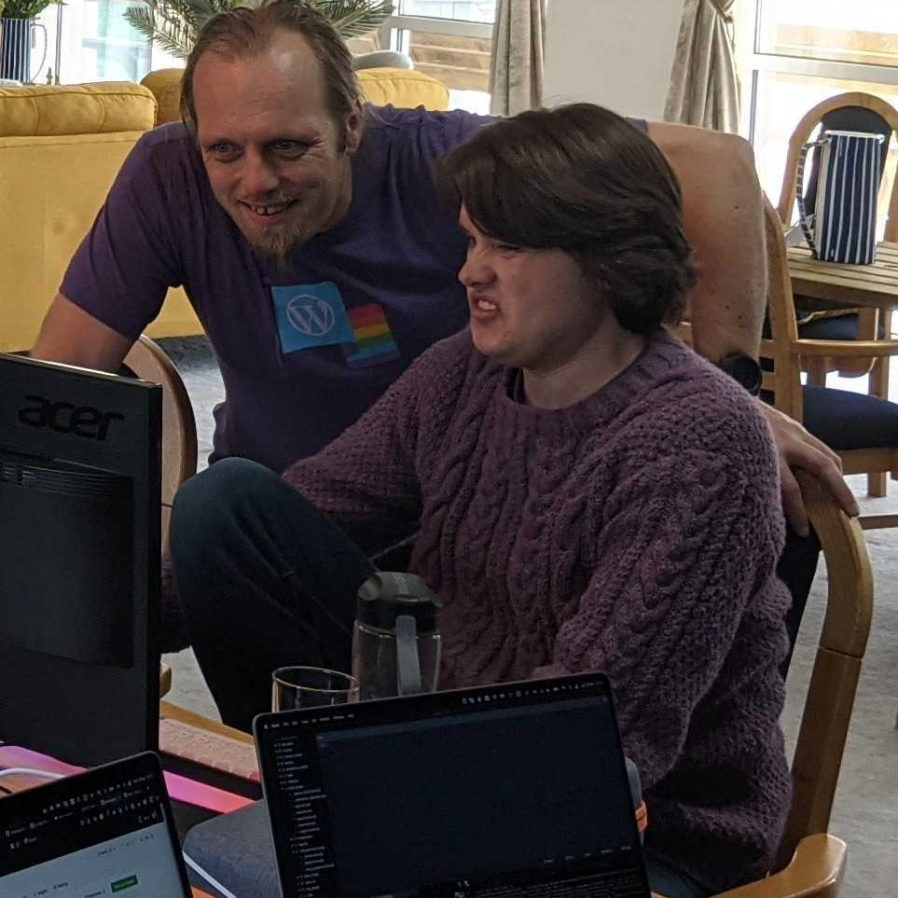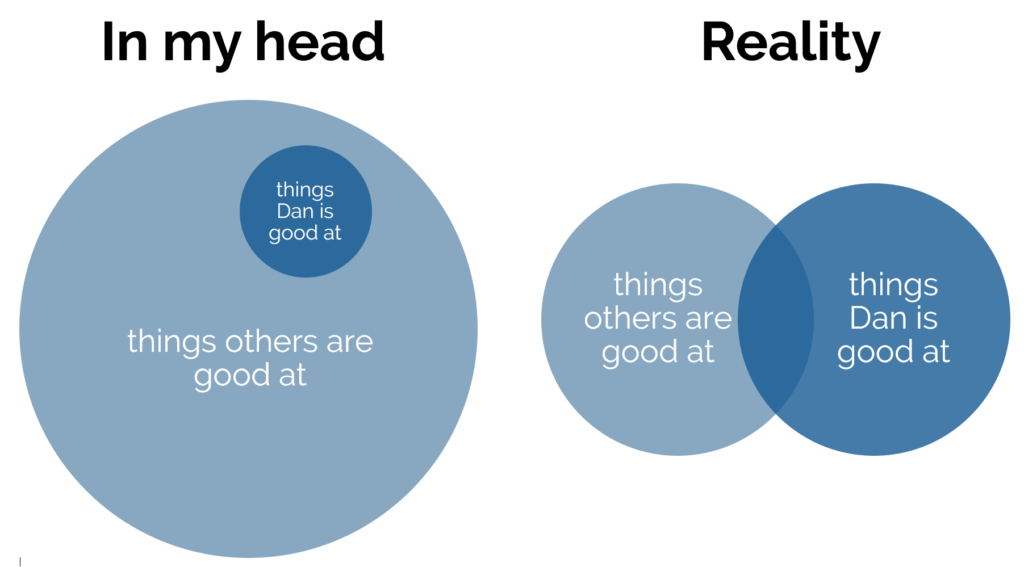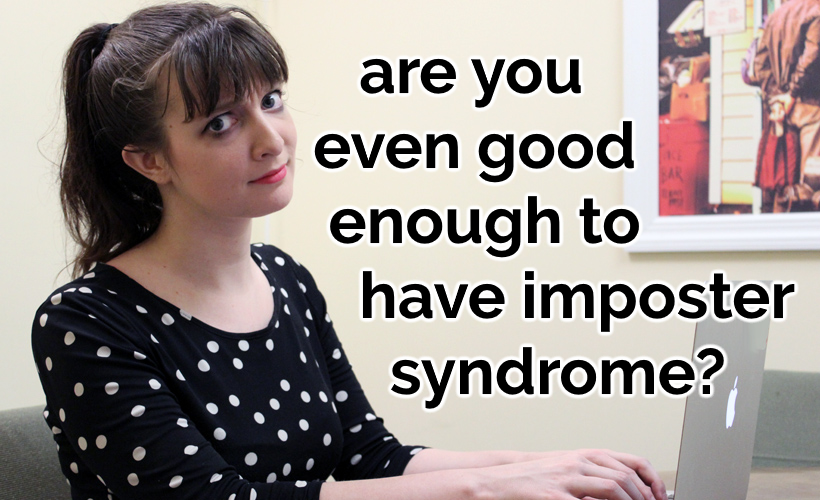Ruth wrote an excellent post this month entitled Wonder Syndrome. It attempts to reframe imposter syndrome (which is strongly, perhaps disproportionately, present in tech fields) as a positive indicator that there’s still more to learn:
Being aware of the boundaries of our knowledge doesn’t make us imposters, it makes us explorers. I’m going to start calling mine “Wonder Syndrome”, and allowing myself to be awed by how much I still have to learn, and then focusing in and carrying on with what I’m doing because although I may not reach the stars, I’ve come a long way up the mountain. I can learn these things, I can solve these problems, and I will.
This really resonated with me, and not just because I’ve totally bought into the Automattic creed, which literally opens with the assertion that “I will never stop learning”. (Other parts of the creed feel like they parallel Ruth’s post, too…)

I just spent a week at a Three Rings DCamp (a “hackathon”, kinda), and for the umpteenth time had the experience of feeling like everybody thinks I know everything, while on the inside I still feel like I’m still guessing a third of the time (and on StackOverflow for another third!).
The same’s true at work: people ask me questions about things that I suppose, objectively, are my “specialist subjects” – web standards, application security, progressive enhancement, VAT for some reason – and even where I’m able to help, I often get that nagging feeling like there must be somebody better than me they could have gone to?

You might assume that I love Ruth’s post principally because it plays to my vanity. The post describes two kinds of knowledgeable developers, who are differentiated primarily by their attitude to learning. One is satisfied with the niche they’ve carved out for themselves and the status that comes with it and are content to rest on their laurels; the other is driven to keep pushing and learning more and always hungry for the next opportunity to grow. And the latter category… Ruth’s named after me.

Bnd while I love the post, my gut feeling to being named after such an ideal actually makes me slightly uncomfortable. The specific sentence that gets me is (emphasis mine):
Dans have no interest in being better than other people, they just want to know more than they did yesterday.
I wish that was me, but I’m actually moderately-strongly motivated by a desire to feel like I’m the smartest person in the room! I’m getting this urge under control (I’m pretty sure I was intolerable as a child and have been improving by instalments since then!). Firstly, because it’s an antisocial pattern to foster, but also because it limits my ability to learn new things to have to go through the awkward, mistake-filled “I’m a complete amateur at this!” phase. But even as I work on this I still get that niggling urge, more often than I’d like, to “show off”.
Of course, it could well be that what I’m doing right now is catastrophising. I’m taking a nice thing somebody’s said about me, picking the one part of it that I find hardest to feel represents me, and deciding that I must be a fraud. Soo… imposter syndrome, I guess. Damn.
Or to put it a better way: Wonder Syndrome. I guess this is another area for self-improvement.
(I’m definitely adopting Wonder Syndrome into my vocabulary, as an exercise in mitigating imposter syndrome. If you’ve not read Ruth’s post in full, you should go and do that next.)
Sorry for giving you anxiety. You’re pretty great though.
On an unrelated note, now I’m seeing the bit of my post you quoted, I’m kicking myself a little for not calling it Explorer Syndrome. So much a better name. Oh well.
I think Wonder works better than Explorer because Explorer could imply going to uncharted places and discovery. Wonder reminds me of the enthusiasm of children and the young-at-heart to go “WOW tell me more”
Fair point. I like Explorer because not only does it sorta kinda half rhyme with Imposter, it also reframes the whole act from feeling lost because you’re out of your depth to feeling lost because you’ve chosen to put yourself in a new and unfamiliar place.
I hereby declare that either is valid :)